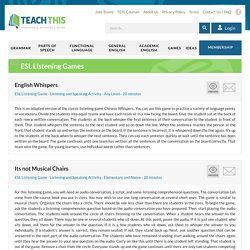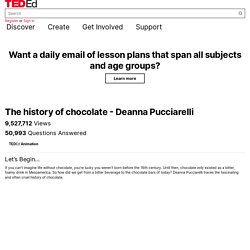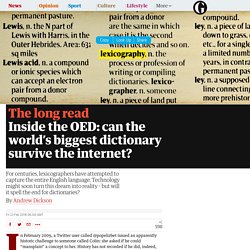

Rants and raves: Winter. Rants and raves: Winter. Elementary/A2. Elementary/A2. Clothes Shopping - Listening Lesson (A2) - Oxford Online English. When you learn vocabulary, you should make a note of related words, such as forms of the word in a different part of speech (e.g. a noun that’s similar to a verb), or words with a prefix added (e.g. un-).

Read five sentences that explain an idea from the dialogue in different words. Then, complete the second sentence each time, using words that the speakers say. 0 of 1 Questions completed Questions: Information You have already completed the quiz before. You must sign in or sign up to start the quiz. You must first complete the following: Quiz complete. 0 of 1 Questions answered correctly Your time: Time has elapsed You have reached 0 of 0 point(s), (0) Earned Point(s): 0 of 0, (0) 0 Essay(s) Pending (Possible Point(s): 0) Well done! Would you like to submit your quiz result to the leaderboard? CurrentReviewAnsweredCorrectIncorrect. 10 Quick and Easy ESL Listening Games to Fill Extra Time.
An excellent ESL teacher always has a few surprise tricks up their sleeve.

Do you find yourself with extra time at the end of class? Ever underestimate how long a lesson will take? It happens to the best of us. ESL listening games are a great way to handle this extra time. Teachers in all areas of study can end up with these empty stretches of time. The classic trick is to fill them up with simple activities that’ll advance your students despite the time restriction. Games are the natural choice of activity, since they help students work out pent up energy, release stress, have fun and spend every last second learning. Download: This blog post is available as a convenient and portable PDF that you can take anywhere. When Your Lesson Doesn’t Fill the Time Slot Oops, you’ve finished up your lesson 15 minutes early and the students are restless! ESL Listening Games Make Extra Time Productive You want something that’s: Short and sweet: you might only have 5 minutes, so a short game is good. ESL Listening Games. You can use this fun listening game to practice a variety of vocabulary.

Ask the students to stand in a circle. Explain to the students that you are going to say lexical sets of words. If they hear a word that does not belong to that set, they must stop what they are doing. Ask all the students to do an animal action, e.g. hop like a frog, dance like a monkey, jump like a kangaroo, etc. As the students are doing the action, they listen to you call out sets of words, e.g. run, speak, hear, read, look, banana. The history of chocolate - Deanna Pucciarelli. Cocoa grows only 20° north and south of the equator.

Click here to see the major growing regions. There are many chocolate timelines, here is a brief sequencing of innovations and discoveries listed on a commercial chocolate of the month club. Etymologists trace the origin of the word "chocolate" to the Aztec word "xocoatl," which referred to a bitter drink brewed from cacao beans. The late Sophie Coe and her husband Michael Coe posit in their book the True History of Chocolate that the earliest linguistic evidence of chocolate consumption stretches back three thousand years, to pre-Columbian cultures of Mesoamerica such as the Olmec.
Why would a very bitter substance, cacao beans, encased in a shell be chosen as the consumable while the white, sweet pulp surrounding the cocoa beans not be eaten as a fruit nectar, or fermented into an alcoholic beverage? Today farmers and scientists understand how crucial the pulp’s role is to fermenting cacao beans. Listening - Intermediate B1. Inside the OED: can the world’s biggest dictionary survive the internet? In February 2009, a Twitter user called @popelizbet issued an apparently historic challenge to someone called Colin: she asked if he could “mansplain” a concept to her.

History has not recorded if he did, indeed, proceed to mansplain. But the lexicographer Bernadette Paton, who excavated this exchange last summer, believed it was the first time anyone had used the word in recorded form. “It’s been deleted since, but we caught it,” Paton told me, with quiet satisfaction. In her office at Oxford University Press, Paton was drafting a brand new entry for the Oxford English Dictionary.
Also in her in-tray when I visited were the millennial-tinged usage of “snowflake”, which she had hunted down to a Christian text from 1983 (“You are a snowflake. Spending 12 months tracing the history of a two-letter word seems dangerously close to folly. The dictionary retains a quiet pride in the lexical lengths to which it will – indeed, must – go. Still, the dream lingered. Inside the OED: can the world’s biggest dictionary survive the internet? – podcast.